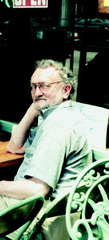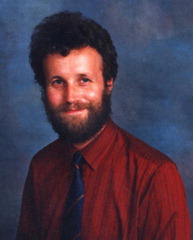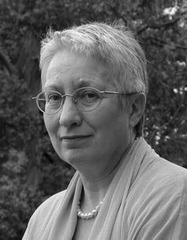 Morton
Morton 
 Morton, John
Morton, John 
 Dyslexia
Dyslexia 
Dyslexia. Someone with dyslexia has normal intellectual abilities, apart from a particular inability (or great difficulty) in learning to read or spell. Dyslexia seems to be a neurological disorder, inhibiting an individual's capacity to recognize and process symbols such as letters (and sometimes also numbers). Although the origins of dyslexia are far from clear, it does occur within particular families, which could point to possible genetic contributions. Dyslexia is also found much more commonly in boys than girls (by a ratio of three to one).\nThe main symptom usually emerges in early schooling, involving very poor reading skills in an otherwise bright child with no apparent problems apart from this. Other symptoms can involve reversals of words/letters in the process of reading or writing, which seems to be linked to significant difficulties in distinguishing left from right. This has led to speculation that the possible causes of dyslexia may lie in incomplete lateralization of the two brain hemispheres (see HEMISPHERIC ASYMMETRIES), although no clear evidence has yet emerged in this respect.

 Key ideas from this model, such as that of lexical units for words, which 'fire' when a certain threshold is exceeded, are clearly discernible in contemporary approaches such as connectionist models. Its influence also stretched to the clinical domain – Morton worked closely with speech therapists, using the model as a framework for designing new therapeutic procedures.
Key ideas from this model, such as that of lexical units for words, which 'fire' when a certain threshold is exceeded, are clearly discernible in contemporary approaches such as connectionist models. Its influence also stretched to the clinical domain – Morton worked closely with speech therapists, using the model as a framework for designing new therapeutic procedures. 
 It may have been this work which triggered Morton's interest in developmental psychology. In 1982, he became director of the Medical Research Council Cognitive Development Unit, and headed it until it closed in the 1990s.
It may have been this work which triggered Morton's interest in developmental psychology. In 1982, he became director of the Medical Research Council Cognitive Development Unit, and headed it until it closed in the 1990s. 
 Morton's interest in memory also lead him to develop new model-headed records – to account for phenomena of everyday memory and memory failure. This in turn took him into the controversial field of 'false memory syndrome' where his views have received wide publicity. Morton has been an active and influential member of the British Psychological Society.
Morton's interest in memory also lead him to develop new model-headed records – to account for phenomena of everyday memory and memory failure. This in turn took him into the controversial field of 'false memory syndrome' where his views have received wide publicity. Morton has been an active and influential member of the British Psychological Society. 
 Morton's work is characterised by a strong commitment to bridging the gap between theory and applica tion in cognitive psychology.
Morton's work is characterised by a strong commitment to bridging the gap between theory and applica tion in cognitive psychology. 
 Morton developed a particularly fruitful collaboration with Frith, leading to work on a theoretical framework for explaining developmental disorders. Morton's interest in cognitive neuropsychology also took on a new dimension at this time, with his interest in neuropsychological aspects of developmental disorders.
Morton developed a particularly fruitful collaboration with Frith, leading to work on a theoretical framework for explaining developmental disorders. Morton's interest in cognitive neuropsychology also took on a new dimension at this time, with his interest in neuropsychological aspects of developmental disorders. 
 He is perhaps best known for a model of memory known as the 'logogen model'. This was one of the first attempts to develop a sophisticated information-processing model and it attracted much interest as a way of testing predictions about phenomena of memory, attention and speech perception, and also influenced ideas about how familiar faces were processed.
He is perhaps best known for a model of memory known as the 'logogen model'. This was one of the first attempts to develop a sophisticated information-processing model and it attracted much interest as a way of testing predictions about phenomena of memory, attention and speech perception, and also influenced ideas about how familiar faces were processed. 
 This unit became one of the leading centres for research into developmental disorders such as dyslex ia and autism, and many leading figures, including Uta Frith, trained or worked here.
This unit became one of the leading centres for research into developmental disorders such as dyslex ia and autism, and many leading figures, including Uta Frith, trained or worked here. 
 Written by Course Team
Written by Course Team 
Top



